Filter by
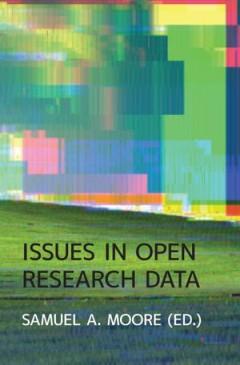
Issues in Open Research Data
In 2010 the Panton Principles for Open Data in Science were published. These principles were founded upon the idea that Science is based on building on, reusing and openly criticising the published body of scientific knowledge’ (http://pantonprinciples.org) and they provide a succinct list of the fundamentals to observe when making your data open. Intended for a broad audience of academics, p…
- Edition
- -
- ISBN/ISSN
- 9781909188310
- Collation
- -
- Series Title
- -
- Call Number
- -
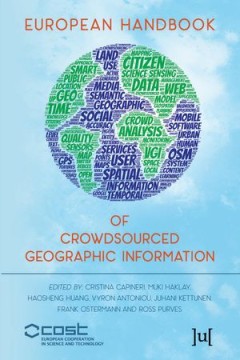
European Handbook of Crowdsourced Geographic Information
This book focuses on the study of the remarkable new source of geographic information that has become available in the form of user-generated content accessible over the Internet through mobile and Web applications. The exploitation, integration and application of these sources, termed volunteered geographic information (VGI) or crowdsourced geographic information (CGI), offer scientists an unp…
- Edition
- -
- ISBN/ISSN
- 9781909188808
- Collation
- -
- Series Title
- -
- Call Number
- -
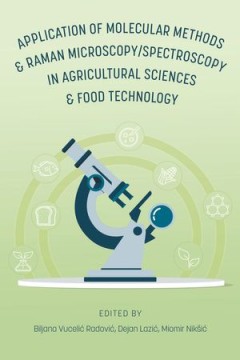
Application of Molecular Methods and Raman Microscopy
This book has been prepared with the aim to present the application of these two state-of-the art technologies in agricultural sciences and food technology, and to explain the protocols for analyses of different plant, animal, microbiological and food samples as well as for different biotechnology procedures. Selected methods and protocols which are used in plant stress physiology, weed science…
- Edition
- -
- ISBN/ISSN
- 9781911529521
- Collation
- -
- Series Title
- -
- Call Number
- -

South Africa’s water governance hydraulic mission (1912–2008) in a WEF-Ne…
Geologists, physicists and ecologists currently promote the idea of a post-Holocene epoch – the Anthropocene. As a result of constant innovation and modernisation in the fields of engineering, natural science, management studies and environmental studies there has been a growing awareness of the intrinsic interaction between humankind and the environment. Humankind has become part of the envi…
- Edition
- -
- ISBN/ISSN
- 9781928396741
- Collation
- -
- Series Title
- -
- Call Number
- -
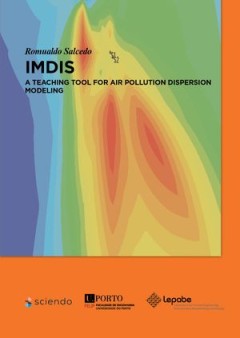
IMDIS
A distinguishing feature of IMDIS is the capability to find globally maximum concentrations under multisource/rose-wind conditions, either from real meteorological data or from potentially worst-case scenarios (critical conditions). The later seem to be especially relevant to the atomic energy industry.
- Edition
- -
- ISBN/ISSN
- 9788395609527
- Collation
- -
- Series Title
- -
- Call Number
- -

Twilight of the Anthropocene Idols
Following on from Theory and the Disappearing Future, Cohen, Colebrook and Miller turn their attention to the eco-critical and environmental humanities’ newest and most fashionable of concepts, the Anthropocene. The question that has escaped focus, as “tipping points” are acknowledged as passed, is how language, mnemo-technologies, and the epistemology of tropes appear to guide the accele…
- Edition
- -
- ISBN/ISSN
- 9781785420153
- Collation
- -
- Series Title
- -
- Call Number
- -

Stolen Future, Broken Present
This book argues that climate change has a devastating effect on how we think about the future. Once several positive feedback loops in Earth’s dynamic systems, such as the melting of the Arctic icecap or the drying of the Amazon, cross the point of no return, the biosphere is likely to undergo severe and irreversible warming. Nearly everything we do is premised on the assumption that the wor…
- Edition
- -
- ISBN/ISSN
- 9781607853145
- Collation
- -
- Series Title
- -
- Call Number
- -
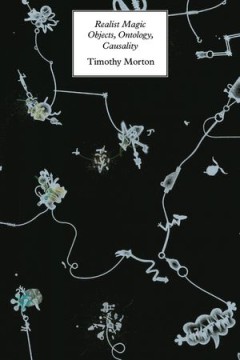
Realist Magic
Object-oriented ontology offers a startlingly fresh way to think about causality that takes into account developments in physics since 1900. Causality, argues, Object Oriented Ontology (OOO), is aesthetic. In this book, Timothy Morton explores what it means to say that a thing has come into being, that it is persisting, and that it has ended. Drawing from examples in physics, biology, ecology, …
- Edition
- -
- ISBN/ISSN
- 9781607852025
- Collation
- -
- Series Title
- -
- Call Number
- -
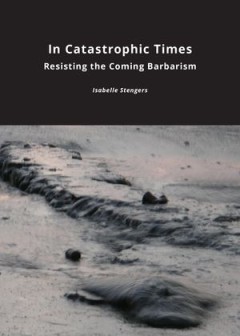
in Catastrophic Times
There has been an epochal shift: the possibility of a global climate crisis is now upon us. Pollution, the poison of pesticides, the exhaustion of natural resources, falling water tables, growing social inequalities – these are all problems that can no longer be treated separately. The effects of global warming have a cumulative impact, and it is not a matter of a crisis that will “pass” …
- Edition
- -
- ISBN/ISSN
- 9781785420092
- Collation
- -
- Series Title
- -
- Call Number
- -

China's Arctic Ambitions and What They Mean for Canada
China’s Arctic Ambitions and What They Mean for Canada is one of the first in-depth studies of China’s increasing interest in the Arctic. It offers a holistic approach to understanding Chinese motivations and the potential impacts of greater Chinese presence in the circumpolar region, exploring resource development, shipping, scientific research, governance, and security. Drawing on extensi…
- Edition
- -
- ISBN/ISSN
- 9781552389027
- Collation
- -
- Series Title
- -
- Call Number
- -
 Computer Science, Information & General Works
Computer Science, Information & General Works  Philosophy & Psychology
Philosophy & Psychology  Religion
Religion  Social Sciences
Social Sciences  Language
Language  Pure Science
Pure Science  Applied Sciences
Applied Sciences  Art & Recreation
Art & Recreation  Literature
Literature  History & Geography
History & Geography